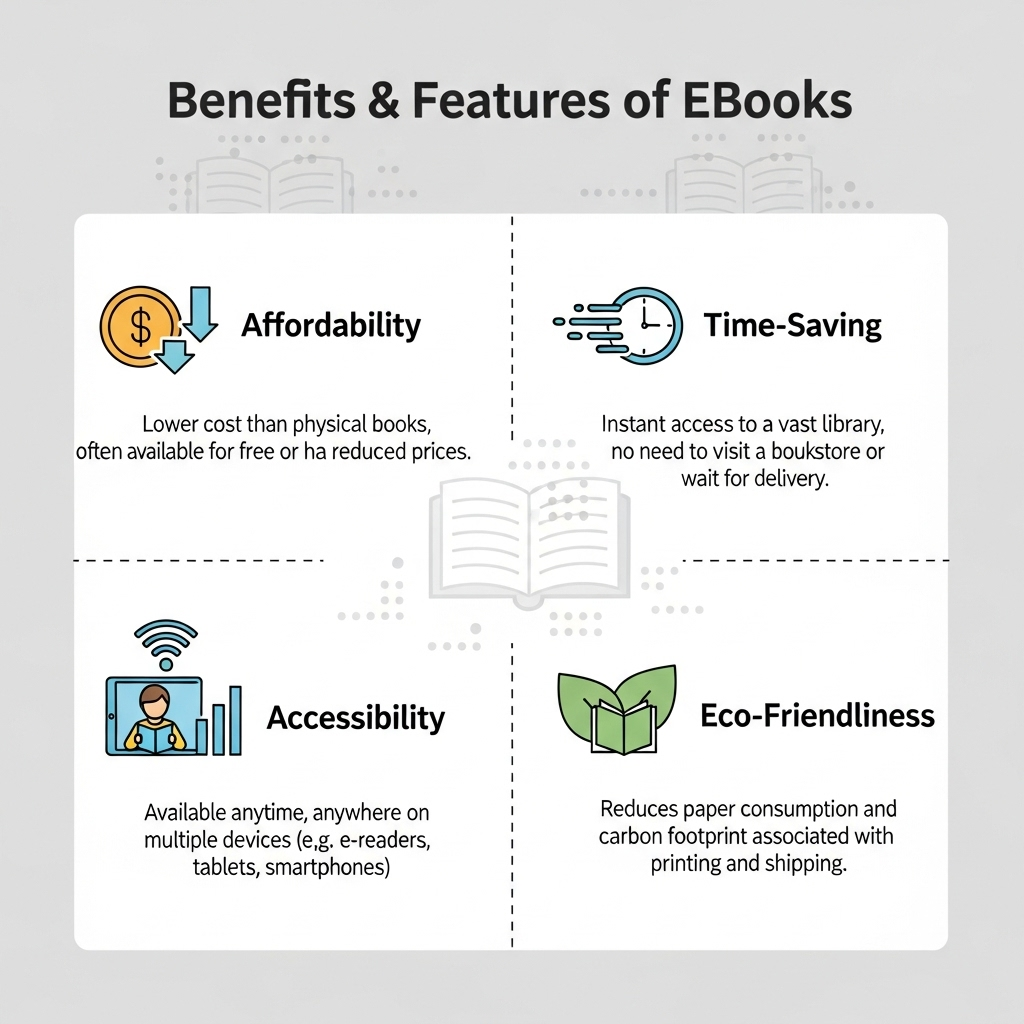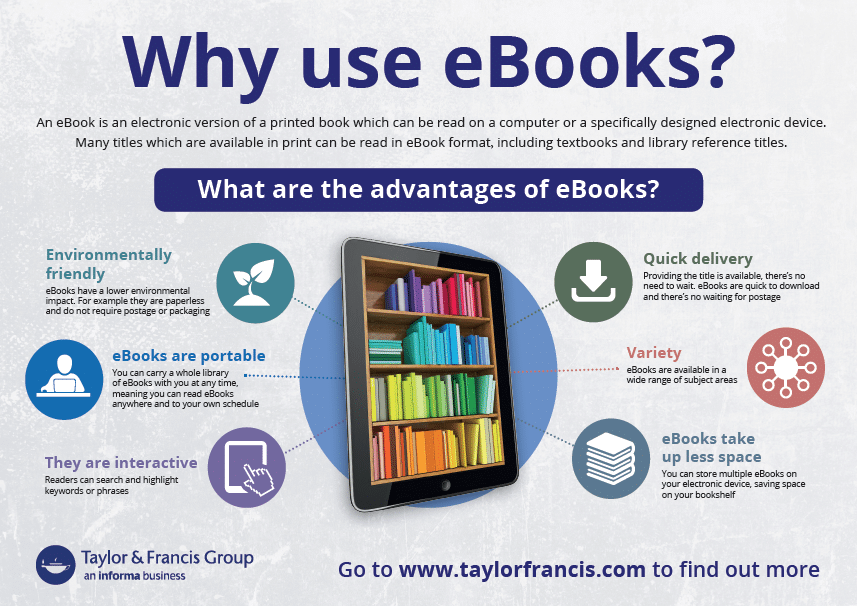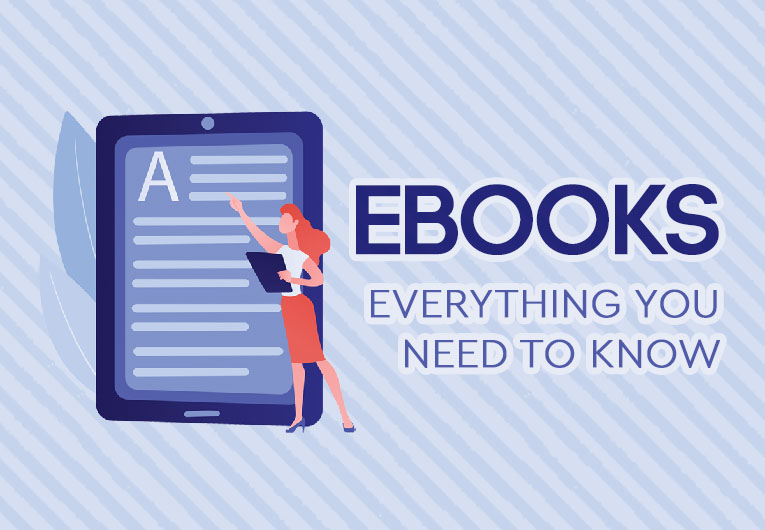
Introduction to Ebook Digital Products
Ebooks, or electronic books, are digital versions of printed books that can be read on electronic devices such as e-readers, tablets, smartphones, and computers. As technology advances, ebooks have become a popular digital product due to their convenience, portability, and cost-effectiveness. The ebook digital product market is expanding rapidly, driven by the increasing demand for accessible and eco-friendly reading options.
An ebook digital product is a book published and distributed in a digital format rather than physical print. It can be read on electronic devices such as e-readers (Kindle, Kobo), tablets, smartphones, laptops, and desktop computers. Ebooks are usually formatted as files in EPUB, PDF, or MOBI formats, among others. Unlike traditional printed books, ebooks are intangible digital files that can be instantly downloaded or streamed, making them accessible globally without the need for shipping or physical inventory.
Uses of Ebooks
Ebooks serve diverse purposes across various fields:
- Educational institutions increasingly adopt ebooks as digital textbooks. These ebooks are often more affordable than printed textbooks and can be updated regularly to include the latest information.
- Many educational ebooks include multimedia elements like videos, quizzes, animations, and hyperlinks that enhance understanding and engagement.
- Ebooks support learners with disabilities by offering features like adjustable font sizes, text-to-speech, and screen reader compatibility.
- With the rise of online education, ebooks provide essential course content that can be accessed anytime and anywhere, supporting flexible learning schedules.
- Students and researchers use ebooks for quick access to journals, articles, and reference books without needing physical libraries.
Education: Ebooks are widely used in schools and universities for textbooks, research materials, and reference books. Educational institutions increasingly adopt ebooks as digital textbooks. These ebooks are often more affordable than printed textbooks and can be updated regularly to include the latest information. Many educational ebooks include multimedia elements like videos, quizzes, animations, and hyperlinks that enhance understanding and engagement. Ebooks support learners with disabilities by offering features like adjustable font sizes, text-to-speech, and screen reader compatibility. With the rise of online education, ebooks provide essential course content that can be accessed anytime and anywhere, supporting flexible learning schedules. Students and researchers use ebooks for quick access to journals, articles, and reference books without needing physical libraries.
Entertainment: Novels, comics, and magazines are available in ebook formats for leisure reading. Ebooks allow authors to publish novels, short stories, and serial fiction directly to readers worldwide. Genres range from romance and thriller to science fiction and fantasy. Digital formats support colorful, high-resolution images and interactive panels, offering a dynamic reading experience. Many publishers release digital versions of magazines with embedded multimedia such as videos and audio interviews. Ebooks enable fan communities and amateur writers to share their creative works with a broad audience. Some ebooks incorporate branching story paths, animations, and soundtracks, creating immersive entertainment experiences.
Professional Development: Many professionals use ebooks for industry-specific knowledge, manuals, and training guides. Professionals can access the latest manuals, whitepapers, research reports, and case studies relevant to their fields. Ebooks offer practical guides, how-to manuals, and tutorials for developing new skills such as coding, marketing strategies, project management, and more. Many certification programs provide ebooks as study materials that include practice tests and exam tips. Business leaders use ebooks on leadership, organizational behavior, and innovation to enhance their capabilities. The portability and searchability of ebooks allow busy professionals to learn on the go and quickly find the information they need.
Marketing and Business: Companies distribute ebooks as lead magnets, product guides, and instructional materials to engage customers. Companies create ebooks as valuable content offers (lead magnets) that users can download in exchange for contact information. Publishing in-depth ebooks on industry topics helps businesses establish credibility and thought leadership. Detailed ebooks explain product features, benefits, and usage instructions, aiding customer decision-making. Businesses use ebooks to train employees, partners, and clients efficiently. Ebooks are part of content marketing strategies, providing rich content that can be repurposed into blog posts, webinars, and social media. Digital distribution enables businesses to reach international audiences without physical shipping constraints.
Self-Publishing: Authors use ebooks to publish and distribute their work independently without the need for traditional publishing houses. Self-publishing eliminates the need for traditional publishers, allowing authors to publish their work directly on platforms like Amazon Kindle Direct Publishing, Smashwords, and others. Authors retain full creative control over their work, including design, pricing, and marketing. Self-published authors often earn higher royalties compared to traditional publishing contracts. Ebooks can be published and updated quickly, enabling authors to respond to reader feedback and market trends. Self-publishing allows authors to serve niche audiences that mainstream publishers might overlook. Authors can build communities around their ebooks through social media, newsletters, and reader groups.
Benefits of Ebooks
Ebooks offer numerous advantages that make them attractive to readers and authors alike:
Portability: Thousands of books can be stored in a single device.
Instant Access: Ebooks can be downloaded instantly from anywhere with internet access.
Searchability: Readers can quickly find specific information with keyword searches.
Environmentally Friendly: Reduces paper use and the carbon footprint associated with physical book production and distribution.
Adjustable Reading Experience: Font size, style, and background color can be customized for comfort.
Cost-Effective: Lower production and distribution costs often translate to lower prices for consumers.
Features of Ebook Digital Products
Modern ebooks come with features that enhance the reading experience:
Interactive Elements: Hyperlinks, embedded audio, and video content.
Annotations and Highlights: Easy to mark important passages and add notes.
Synchronization: Bookmarks and reading progress sync across multiple devices.
Accessibility: Text-to-speech options and compatibility with screen readers.
Multiple Formats: Available in formats like EPUB, PDF, and MOBI to suit different devices.

Affordability and Time-Saving Aspects
Ebooks are generally more affordable than printed books because they eliminate printing, shipping, and storage costs. This affordability makes literature and information accessible to a broader audience. Additionally, ebooks save time by offering immediate delivery, eliminating the need to visit bookstores or wait for delivery. Features like keyword search and hyperlinks further speed up information retrieval.
Who Can Purchase Ebooks?
Almost anyone with access to a digital device and the internet can purchase ebooks. Key user groups include:
- Students and educators seeking academic resources.
- Professionals looking for industry-specific knowledge.
- Avid readers who prefer portable and convenient reading.
- Self-published authors and small publishers.
- Businesses and marketers using ebooks for content marketing.
Why You Would Purchase an Ebook?

Reasons for purchasing ebooks include:
- Convenience of instant access and portability.
- Cost savings compared to physical books.
- Preference for digital reading with adjustable settings.
- Desire to reduce environmental impact.
- Access to interactive and multimedia content.
- Availability of rare or out-of-print titles.
Conclusion
Ebooks have revolutionized the way we consume literature and information. They provide unparalleled convenience, affordability, and accessibility while supporting environmental sustainability. Whether for education, entertainment, or professional growth, ebooks serve a wide audience with diverse needs. Although paper books offer a unique tactile experience, the digital advantages of ebooks make them a valuable product in the modern world.
Refer for ebooks: https://scaledigitalhub.com/shop/
Ebook Reader app: https://about.ebooks.com/ebook-reader-app-for-android-and-ios/

